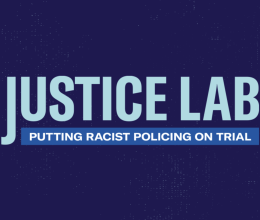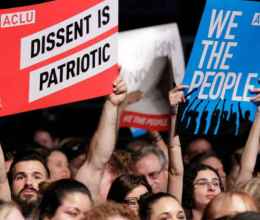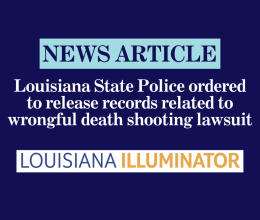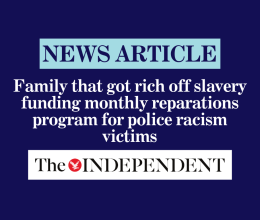Revelations underscore the need for greater transparency, City Council to ban facial recognition
NEW ORLEANS – After years of assurances from city officials that facial recognition was not used in New Orleans, the ACLU of Louisiana has obtained nearly 50 pages of email requests from New Orleans Police Department (NOPD) to the Louisiana State Police (LSP) Fusion Center asking LSP to use facial recognition on various photos and video stills. The correspondence dates back to 2018.
Most notably, the correspondence contains a 2018 email from LSP to NOPD outlining the process for requesting facial-recognition analysis and how to use LSP’s standard request form, which indicates that there is in fact a formalized system in place, including training by LSP for local intelligence officers.
Earlier this year, ACLU of Louisiana Executive Director Alanah Odoms condemned the NOPD after an investigation by The Lens revealed that the Department had been secretly employing facial recognition technology through “state and federal partners.” Odoms also called for an immediate investigation and response from NOPD and New Orleans Mayor LaToya Cantrell.
“Facial recognition technology is a dangerous and racially biased tool that invades people’s privacy and is ineffective at combating crime,” said Odoms. “It is especially disappointing that public trust was so shamelessly violated, but we will continue to demand an independent investigation into why the community has been misled. These disturbing revelations underscore the need for The New Orleans City Council to end these abuses and pass sensible reforms that will ban the use of facial recognition technology and allow for more effective approaches to reducing crime.”
As a member of the Eye on Surveillance Coalition, the ACLU of Louisiana opposes the unfettered expansion of government surveillance and seeks an end to racially biased, unreliable technologies like facial recognition.
To access email requests from NOPD to LSP, click here; note that the ACLU has redacted the faces of people whom the police were trying to identify.






